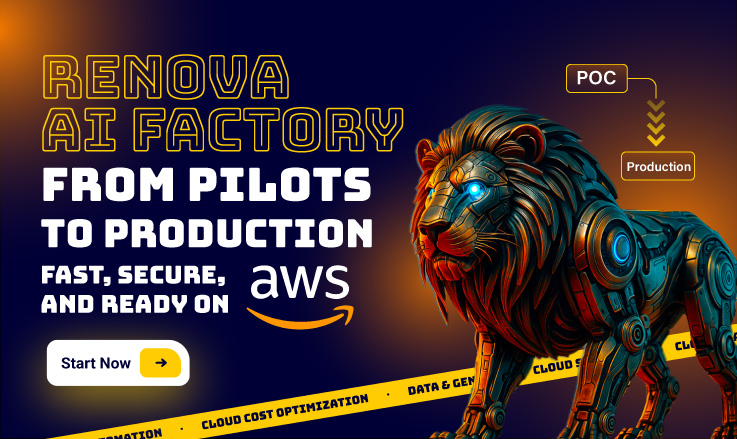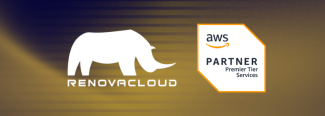
Navigating Broadcom’s VMware Acquisition: What It Means for VMware Cloud on AWS Users and Businesses

Vu Anh
Marketing Executive
Table of Contents
An Overview Of What Happened
With Broadcom’s recent acquisition of VMware and the subsequent hike in licensing costs, businesses using VMware’s solutions are facing critical changes. Adding to the complexity, AWS no longer resells VMware Cloud on AWS, limiting options for infrastructure management through AWS. This shift has left many companies at a crossroads.
In this article, we’ll explore the key changes and what they mean for traditional VMware users and VMware Cloud on AWS customers.
Key Changes Impacting VMware Users
-
End of Perpetual Licenses and Transition to Subscription-Based Models
VMware has stopped selling perpetual licenses and will no longer provide support or subscription renewals for these offerings. Customers with existing perpetual licenses and active support contracts can still use them, but they won’t receive further updates or upgrades. Moving forward, VMware users will need to purchase a subscription-based Support and Subscription (SnS) contract to receive ongoing support, updates, and access to new versions.
-
Shifting to Subscription Licenses
VMware’s products are now only available as subscriptions or term licenses. To encourage adoption of annual software subscriptions, Broadcom has reduced the price of VMware Cloud Foundation (VCF). Additionally, they have introduced a “bring-your-own-subscription license” option, which allows customers to transfer licenses to VMware-validated hybrid cloud environments using VCF.
-
Consolidation and Simplification of VMware’s Product Portfolio
As part of portfolio simplification, many VMware solutions will now be bundled with either VMware Cloud Foundation (VCF) or VMware vSphere Foundation (VVF), rather than being available as standalone products. VMware has also introduced advanced add-ons for these bundled solutions, while some older products and services have been discontinued or consolidated.
-
Discontinuation of Free ESXi Hypervisor
VMware’s vSphere Hypervisor (Free Edition), a critical tool in many organizations’ tech stacks, has reached End of General Availability (EOGA) with no direct replacement. This move will significantly impact organizations that used the free edition as part of their hybrid cloud or virtualization strategies.
-
Simplified Pricing Structure
Broadcom’s acquisition has led to a new pricing model, simplifying licensing into a single SKU under VMware Cloud Foundation (VCF). This aims to reduce the complexity of VMware’s previous pricing options but may result in increased costs for users, especially those with lightweight deployments.
-
VMware Partner Program Overhaul
Broadcom has revamped VMware’s partner ecosystem, transitioning to an invite-only Broadcom Advantage Partner Program. This shift has terminated existing partnership agreements and created new barriers for partners, potentially limiting access to VMware solutions for smaller organizations.
-
VMware Cloud on AWS Shift
AWS is no longer reselling VMware Cloud on AWS. Renewals and new subscriptions must now be purchased directly from Broadcom or a Broadcom-authorized reseller. Customers with existing VMware Cloud on AWS subscriptions via AWS will continue to be invoiced by AWS until the end of their contract term. However, moving forward, all new sales and support will be handled through Broadcom’s channels.
These changes represent a significant shift, especially for traditional VMware users and VMware Cloud on AWS customers. Let’s explore how these developments will impact both user groups.
Impact on Users
-
Traditional VMware Users
For traditional on-premises VMware users, the move to consumption-based licensing models and bundled product offerings will likely result in cost increases. Businesses using only a few VMware solutions may face higher expenses, while those deeply integrated with VMware’s ecosystem could see simplified bundles and reduced costs. Smaller organizations may also find themselves deprioritized by Broadcom, as the company appears to be focusing more on large enterprises, leaving uncertainty around the future support of some VMware products.
-
VMware Cloud on AWS Users
For VMware Cloud on AWS users, the change has introduced complexity regarding service continuity and support. Users can no longer manage subscriptions directly with AWS and are limited to read-only access through VMware’s Cloud Services portal. While AWS will continue to support existing deployments under current contracts, Broadcom’s new model introduces stricter requirements, including a one-year commitment for new resources. Moreover, potential cost increases, limitations on AWS integration, and uncertainty about product development raise concerns for businesses that depend on VMware Cloud on AWS.
Solutions and Next Steps for VMware Cloud on AWS Users
In light of these changes, VMware Cloud on AWS users must make strategic decisions about their future cloud infrastructure. Two primary options are available:
- Migrate to AWS Native Solutions: Businesses can leverage AWS-native services to run their workloads without VMware. Tools like AWS Migration Hub and AWS Application Migration Service are designed to help users smoothly transfer applications, data, and workloads to AWS, minimizing disruption.
- Explore Alternative Cloud Solutions: Companies may also consider alternative hybrid cloud solutions or other cloud platforms based on their unique infrastructure needs.
Migrating to the cloud can be complex, especially for businesses without in-house expertise. AWS offers support and financing to assist with migrations that begin in May, June, or July 2024. Engaging with an AWS-certified partner can further simplify the transition.
Renova Cloud’s Strategic Migration Offer: Migrate, Optimize, and Modernize VMware Workloads on AWS
At Renova Cloud, we specialize in helping businesses migrate and optimize their VMware workloads on AWS. Our migration offer includes:
- No-Cost VMware Assessment: Understand your migration options with assessments led by AWS and VMware-certified engineers.
- Migration Funding Program: AWS and Renova provide financial incentives to make your migration cost-effective, with cost-saving programs and migration support.
- VMware Training for Administrators: We offer authorized instructor-led training to help VMware administrators develop the necessary skills for cloud-native solutions, along with free AWS Skillbuilder licenses to empower teams to upskill quickly.
Incentive Programs for VMware Cloud on AWS Users
VMware Migration Accelerator (VMA)
- Up to $400 per VM in credits for migration of VMC on AWS (VMC-A) workloads to Amazon EC2
- VMA incentives can be stacked on top of PPA, EDP, and VMP
Offer
| Tier | Applicable To | Velocity Requirement | AWS Promotional Credits |
| Tier 1 | VMC on AWS (VMC-A) workloads | Migrate over 80 VMs per month | $400 per VM |
| Tier 2 | VMC on AWS (VMC-A) workloads | Migrate 40-79 VMs per month | $200 per VM |
Eligibility Criteria
- Opportunity must be partner or AWS originated in ACE Partner central tagged to partner
- Must be migrated from VMC on AWS (VMC-A) to Amazon EC2 (Not applicable to VMC on GCP/Azure/OCI)
- Migrated VM (AWS EC2 instance except T2 and T3) should run on AWS for at least 720 hours (can be non-continuous) after migration
Windows Migration Accelerator (WMA)
To influence an accelerated migration of Windows EC2 workloads to AWS
Program Incentives
- Up to $250 in service credits (for customers) for every migrated Windows server
- WMA incentives can be stacked on top of already agreed upon presales incentives
Qualification Criteria
| Target Migration Velocity | Migration Scope | Velocity Requirement |
| Minimum 80 servers per month | Minimum 25 Windows servers | $250 per server |
| Minimum 40 servers per month | Minimum 15 Windows servers | $200 per server |
Plan Your Migration with Renova Cloud
As VMware’s landscape shifts under Broadcom’s leadership, businesses must adapt to new licensing models, product bundles, and cloud migration strategies. Renova Cloud offers tailored migration solutions that help organizations optimize VMware workloads on AWS.
Reach out to Renova Cloud today to explore your migration options and ensure a smooth transition to the future of cloud infrastructure!



